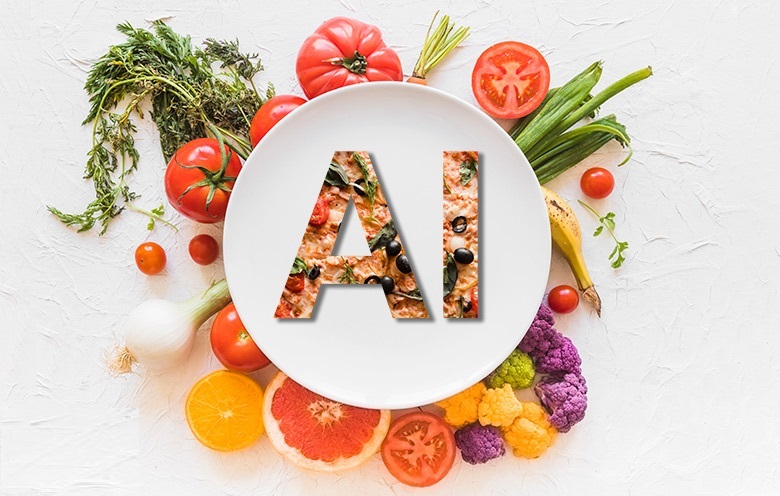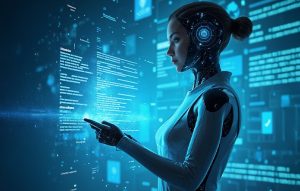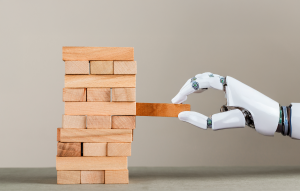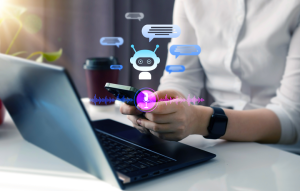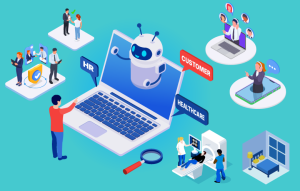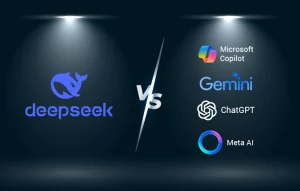The food and beverage (F&B) industry is now set to open arms to innovations with the help of artificial intelligence (AI). With excessively growing consumer demands, there is a tremendous change in the F&B sector. Undoubtedly, F&B is fast-paced and consumer-driven. Now let’s see how the application of artificial intelligence in the food industry can tackle the challenges they face.
“The Artificial Intelligence in Food and Beverages Market is expected to register a CAGR of over 65.3% during the forecast period 2019 – 2024.”
– Research And Markets
Challenges faced by F&B
F&B enterprises are continually challenged by the changing global trends. Firstly, meeting the regulatory compliances related to food and safety processes, which has become a priority for enterprises today. Also, managing manufacturing lines and pieces of equipment and reducing supply chain waste is another challenge for F&B enterprises. Moreover, checking on inventory stocks, maintaining food quality, and other services that are especially cost-oriented. A combination of these challenges can set a huge financial setback and harm the brand’s reputation.
Here’s what AI brings to the table
AI in the food and beverage industry holds a massive opportunity. Here are some of the incredible ways of how AI can transform the F&B sector:
1. Predicting the sales cycle
F&B companies have numerous customers and it is challenging to keep an engaging relationship with everyone. Artificial intelligence can play an important role here as it can help food manufacturers, retailers, and restaurants to know their customers well.
Application of artificial intelligence in the food industry can keep track of your customers, their likes and choices, which are important metrics to predict sales. For instance, a retailer can get a clearer understanding of identifying their main customers with their repeat purchases and hence, can stock-up the inventories. Artificial intelligence uses your historical data, processes it using AI-enabled algorithms and provides you with results that can predict the sales cycle for a period of time.
2. Knowing customers
AI can predict your customer’s taste and modes of purchase. Here’s how it works: AI monitors your customers’ emotions over social media networks and uses natural language processing and data analytics to go through your customer’s activity and categorize it into positive, negative or neutral responses.
Even many F&B companies use AI technique like content moderator to analyze their customers’ emotions. Results from these techniques can be reviewed to create new recipes and food products that best savour your customers’ taste buds. Besides, such analysis can also provide you with deeper insights on how and when you should promote these products.
3. Forecasting inventories
F&B enterprises often struggle to identify which products should be stocked, where they should be stocked and how they should be stored. Artificial intelligence can act as a helping hand for retailers as it is capable of providing accurate guidelines for better market analysis.
AI-powered algorithms learn from various factors such as product promotions, social media, consumer demand, market trends, and even the weather. These factors are very likely to influence consumer behavior. As a result, using AI, an enterprise can be confident of stocking the products that are in demand, and also, how they can be delivered last-minute if the demand increases.
One of the main benefits of using AI is to have increased data and analytics. This helps manufacturers understand issues with inventory, at the same time through machine learning, data can be used to make predictions on pricing and inventory for more accurate forecasting.
4. Improving supply chain
Supply chain management is a constant struggle for F&B enterprises. With the increasing food safety regulations, there is a need for complete transparency in the supply chain management of F&B enterprises. There is a huge necessity to track the data-driven supply chain, and that’s where AI can help by providing new supply chain insights to stay ahead of the curve.
AI can help track F&B throughout the entire supply chain, from the farm to the manufacturer to the distributor and to the store. This helps F&B distributors to be more transparent to consumers. There is a lot on the horizon for AI to help the F&B supply chain. AI not only allows products to become more traceable, and have more analytics to determine supply and demand, but also, on a global scale, it can make food consumption safer by identifying abnormalities. AI can also be used to make decisions on the operation of the supply chain.
5. Sorting for quality check
Sorting is one of the most time-consuming processes for any product. For example, sorting potatoes by size can help manufacturers decide which ones should be used to make French fries or hash browns. Similarly, sorting out off-color tomatoes will help decrease rejections by retailers as all food items and products require sorting.
With AI, sorting can be made easier. AI automates this process by using a sensor-based optical sorting technique which is powered by machine learning. As a result, companies spend fewer hours on sorting while gaining benefits from higher yields and reduced waste, and of course, better quality. Many food processing machines are already using AI to either sort food items or assist in co-manufacturing.
F&B sector: Time to act
AI has a huge scope to develop a broader reach, advanced recommendations, new product development, better consumer engagement and importantly, it offers efficiency. It is time for F&B brands to start adopting AI and reap its advantages.


